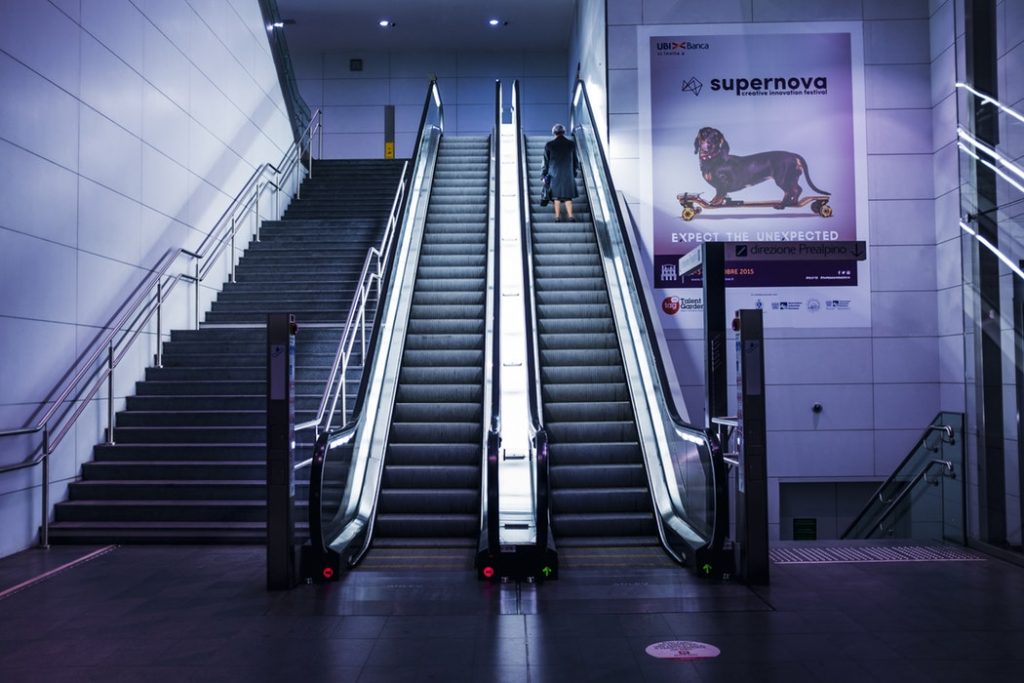 The machines we use to go about our lives each day don’t seem dangerous. We don’t think twice about getting in our cars to drive to and from work, but it’s the most dangerous thing most Americans do on a given day. If you live in a metropolitan area, taking an escalator to the train or inside your office building is part of your routine.
The machines we use to go about our lives each day don’t seem dangerous. We don’t think twice about getting in our cars to drive to and from work, but it’s the most dangerous thing most Americans do on a given day. If you live in a metropolitan area, taking an escalator to the train or inside your office building is part of your routine.
You may want to think twice about taking the escalator next time, however, because if something goes wrong, it can be life-threatening.
How Escalator Injuries Occur
Escalator injuries can happen in a number of ways. In a recent extreme example, a New York man was choked to death after his shirt was caught in a subway escalator. The man’s shirt became entangled in the escalator in the Bronx. The man attempted to free himself from both the escalator and his shirt, but was unsuccessful.
That same month in Washington, D.C., a man in a wheelchair died while trying to ride an escalator. He decided to take the escalator because the wait for the elevator was too long. Once the man reached the top of the escalator, he and his wheelchair fell, tumbling to the bottom (Newsweek).
About a month prior to these incidents, 10 students were injured in an escalator accident at Stuyvesant High School in Manhattan. Although the students’ injuries were minor, all 10 were taken to the hospital. The NYC Department of Education labeled the accident a “serious incident” involving emergency medical services and the New York City Fire Department.
The above examples demonstrate ways that escalator injuries can happen. Escalators often cause injury due to clothing or shoelaces being caught in the belt; trips and falls; and malfunctions, such as a sudden stop that causes falls or other injuries.
How to Stay Safe on an Escalator
About 90% of escalator accidents involve senior citizens or small children, so if you are a senior citizen or have a small child, you may want to take extra precautions when riding an escalator. Here are some basic safety tips to prevent injury (North Carolina Department of Labor):
- Always hold children’s hands on escalators and do not permit children to sit or play on the steps.
- Pay attention to balance when getting on and off the escalator.
- Take care of loose shoe laces, drawstrings, scarves, mittens, and flip-flops so they do not get caught in the sides or under the belt of the escalator.
- Be aware that most escalators have an emergency shutoff button. Use it, if necessary.
- Never stop, stand, or play at an escalator landing because a dangerous pileup could occur. A bottleneck of children on an escalator at the Old Memorial Stadium in Baltimore caused one death and 46 injuries in 1964 (Listverse).
Who Is Liable for Texas Escalator Injuries?
A Texas escalator injury may be considered a premises liability case. Premises liability is the legal concept that property owners and managers have a duty to maintain a reasonably safe area for visitors. If a person is injured due to an unsafe or defective condition of property, they may be able to bring a case against the property owner for a breach of the owner’s duty of care. In the case of a dysfunctional escalator, there are many possibilities for who may be responsible for an injury:
- The manager of the property where the escalator is located
- The legal owner of the property
- The escalator manufacturer
- The company responsible for performing maintenance on the escalator
If the escalator’s manufacturer or maintenance company were responsible, this type of case could also be considered product liability.
Whether product or premises liability, there are a few basic elements that a defendant must prove in order to demonstrate liability after an elevator injury:
- Your injuries occurred, which can be proven with photos and medical records.
- You were using the escalator as directed.
- Your injuries were a direct result of the escalator’s defect, not just a coincidence.
- The property owner and/or escalator manufacturer was negligent – they did not take proper care. For example, a property owner who skips an escalator maintenance check would most likely be considered negligent.
Work with an Experienced Personal Injury Lawyer
If you’ve been injured due to a malfunctioning or unsafe escalator, you should reach out to an experienced Dallas personal injury attorney as soon as possible. Seemingly harmless products can turn violent due to other people’s carelessness.
No one deserves to be injured on their daily commute or a day out, and you should receive compensation for medical bills and other expenses. Contact Crowe Arnold & Majors, LLP at (214) 231-0555 for a no-cost evaluation of your case.





